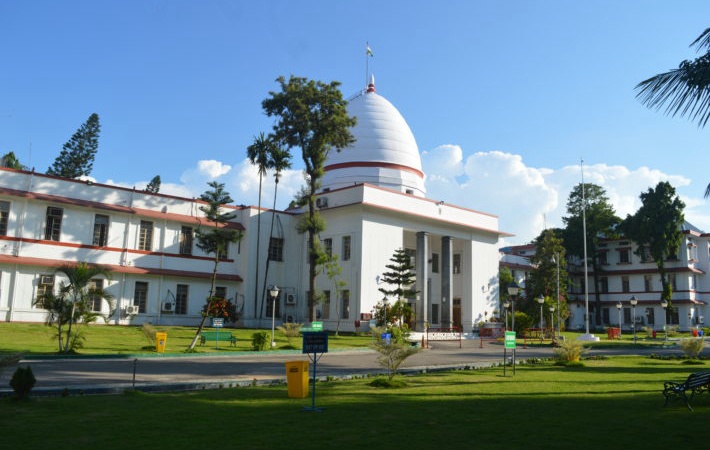
High Court Halts Implementation of Kohima Bench Ruling
The Gauhati High Court has temporarily suspended the enforcement of a Kohima Bench ruling that mandated the Nagaland government to allocate an MBBS seat under the central pool quota to Vatsala Panghal, the daughter of a senior army officer. The division bench, comprising Chief Justice Ashutosh Kumar and Justice Arun Dev Choudhury, ordered the stay of the August 14 judgment, leaving one medical seat vacant until the appeal concludes. The court’s decision to halt the ruling has sparked renewed debate over the allocation of state quota seats and the criteria for eligibility, particularly for candidates with ties to central government employees.
Legal Dispute Over Quota Eligibility
Vatsala Panghal, who scored 455 in the NEET exam—higher than the second-ranked candidate in Nagaland’s merit list—was excluded from the provisional selection list despite her father’s service in the state. She challenged the omission and the 2021 eligibility criteria requiring candidates to have parents residing in Nagaland for at least three years. The petition argued that the state’s policy violated Union Health Ministry guidelines promoting merit-based admissions. The court’s single judge, Justice Mridul Kumar Kalita, ruled the 2021 notification conflicted with updated guidelines, directing the Directorate of Technical Education to allocate the central pool seat to Panghal. The state’s appeal against this directive now faces a judicial review.
State’s Legal Arguments and Student Opposition
Nagaland’s government contested the ruling, asserting that Panghal’s eligibility hinged solely on her father’s one-year posting in the state, which does not meet the three-year residency requirement. The state emphasized its authority to set eligibility criteria and argued that central guidelines are advisory. Meanwhile, student organizations like the Naga Students’ Federation (NSF) and Nagaland Medical Students’ Association (NMSA) raised concerns about the impact on indigenous students. They contended that Panghal’s non-Naga status and Haryana residency disqualify her from the state quota, warning that the ruling could undermine reservations for local candidates. Protests and calls for stricter verification of tribal identities have intensified the controversy.
Broader Implications for Reservation Policies
The case has ignited a national conversation about the intersection of reservation policies and the rights of government employees’ dependents. Advocates argue that central government employees’ wards should be treated equally to local residents, while critics emphasize the need to protect indigenous communities’ access to education. The Office Memorandum of July 28, 2025, explicitly included Panghal under the category of wards of central government employees, yet the state’s appeal challenges this interpretation. The court’s upcoming hearing on September 8 will determine whether the seat remains vacant or is allocated, setting a precedent for similar disputes across India’s quota systems.
Legal and Social Ramifications
The prolonged legal battle highlights the complexities of balancing merit-based admissions with affirmative action policies. While the state’s appeal seeks to safeguard indigenous opportunities, the petitioner’s case underscores the rights of central government employees’ families. The High Court’s stay order reflects the judiciary’s role in mediating such conflicts, ensuring compliance with both constitutional principles and administrative guidelines. As the case unfolds, it may influence future policies on quota allocations, residency criteria, and the treatment of dependents of public servants in education systems nationwide.



